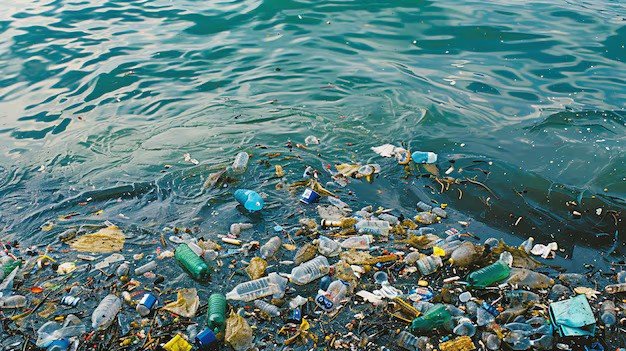
Dhaka, June 5, 2025 (PR) — On the occasion of Environmental Day 2025, Change Initiative warns that Bangladesh is facing a rising tide of plastic pollution from cross-border rivers — a crisis that threatens its coasts, ecosystems, fisheries, and public health.
According to Change Initiative’s new paper “Cross-Border Plastic Pollution and Its Impact on the Bay of Bengal”, an alarming 15,345 tonnes of single-use plastic flows into Bangladesh daily through 18 transboundary rivers — one of the highest such rates globally. These plastics accumulate in the Sundarbans mangrove and the Bay of Bengal, where they smother marine life, disrupt fisheries, and endanger livelihoods.
Plastic is turning the Sundarbans — the world’s largest mangrove forest — into a "cesspit of waste," threatening critical fish nurseries, coastal livelihoods, and public health. An estimated $11.4 billion in ecosystem services are lost annually to Bangladesh and neighboring countries due to marine plastic pollution.
Globally, Asian rivers contribute 86% of river plastic emissions into oceans — with the Ganges ranked as the second largest plastic-emitting river worldwide, discharging up to 115,000 tonnes annually.
"Our coast is becoming a plastic hotspot," said Change Initiative’s Chief Executive and Managing Director M Zakir Hossain Khan.
"Following polluters pay principles not the states rather the key plastic promoting corporates will be held accountable for sustainable management. Single use plastic must be banned globally and to curb the productions and consumption exemplary positive and negative incentives. Moreover, aligned with Natural Rights Led Governance (NRLG) is Protection of Life and Livelihoods (Right to Clean and Heatly Ocean in nature justice. To ensure that enforce bans on hazardous plastic near ecologically critical areas (ECAs) and fishing zones, prioritize pollution impact assessments for plastic-heavy coastal industries; and legally recognize artisanal fisherfolk and coastal communities’ right to a plastic-free marine environment, as their livelihood and health depend on it.
Nature Justice and Legal Personhood of Oceans can be achieved through declare marine zones (e.g., Sundarbans, coral reefs, estuaries) as Natural Rights Sites. Grant legal personhood to selected coastal ecosystems or marine areas, enabling them to sue polluters through community legal mechanisms as crime against nature. Builds community guardianship and empowers local protection against industrial plastic discharge and ghost gear. Tiling measures to adopt rule by natural law and natural Accountability or Extended Producer Responsibility (EPR) for downstream pollution, especially in marine contexts. Require life cycle tracking of plastic products used in coastal and shipping industries. Equity and Intergenerational Justice are to be applied transforming Plastic-to-Circular Economy or ensure that recycling benefits are equitably distributed, not monopolized by corporations or middlemen.
Empower coastal community units (50% women and youth) to monitor marine litter, report ghost gear, and co-manage plastic waste hot spots through real-Time Marine Plastic Monitoring (Use mobile apps or SMS systems for fisherfolk to report plastic concentration or threats to marine species.)"
Change Initiative’s paper calls for:
-
Legal personhood for key marine zones like the Sundarbans and coastal estuaries — empowering communities to hold polluters accountable through legal channels.
-
Mandatory life cycle tracking of plastic products used in coastal and shipping industries under Extended Producer Responsibility (EPR).
-
Empowering coastal communities, including 50% women and youth, to co-manage marine litter hotspots using real-time plastic monitoring tools (mobile apps and SMS-based reporting for fisherfolk).
-
Enforcing bans on hazardous plastics near ecologically critical areas (ECAs) and fishing zones.
The report also urges Bangladesh to take the lead in pushing regional agreements on cross-border plastic waste under BIMSTEC and during the upcoming Global Plastics Treaty negotiations.
Without urgent national and regional action, Bangladesh’s coasts will remain vulnerable to this escalating "toxic pool of waste."



